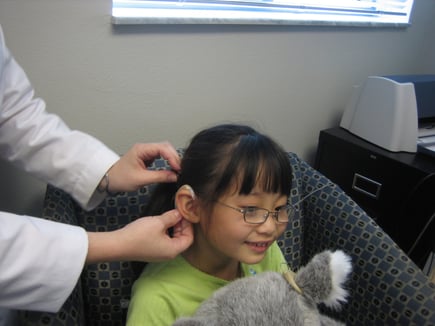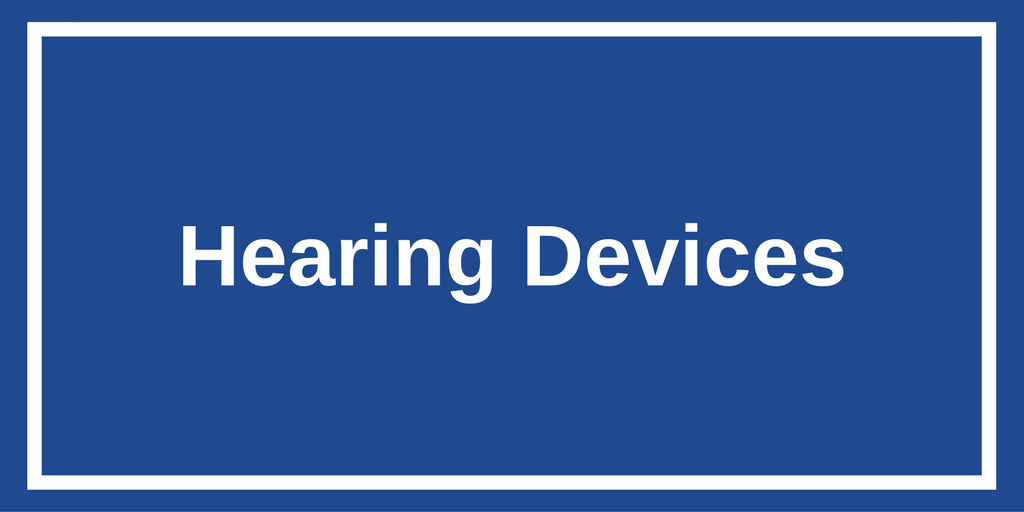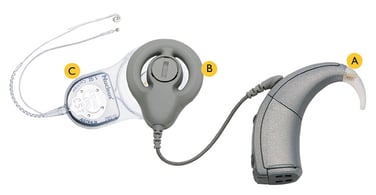Cochlear Implants and Implantable Devices
What is a cochlear implant?
A cochlear implant is a small, complex electronic device that can help to provide a sense of sound to a person who is profoundly deaf or severely hard of hearing. The implant is surgically placed under the skin behind the ear. An implant has four basic parts:
-
A microphone, which picks up sound from the environment;
-
A speech processor, which selects and arranges sounds picked up by the microphone;
-
A transmitter and receiver/stimulator, which receive signals from the speech processor and convert them into electric impulses;
-
And electrodes, which collect the impulses from the stimulator and send them to the brain.
An implant does not restore or create normal hearing. Instead, under the appropriate conditions, it can give a deaf person a useful auditory understanding of the environment and help him or her to understand speech.
How does a cochlear implant work?
A cochlear implant is very different from a hearing aid. Hearing aids amplify sound. Cochlear implants compensate for damaged or non-working parts of the inner ear. When hearing is functioning normally, complicated parts of the inner ear convert sound waves in the air into electrical impulses. These impulses are then sent to the brain, where a hearing person recognizes them as sound. A cochlear implant works in a similar manner. It electronically finds useful sounds and then sends them to the brain. Hearing through an implant may sound different from normal hearing, but it allows many people to communicate fully with oral communication in person and over the phone.
 Who gets cochlear implants?
Who gets cochlear implants?
-
Different types of deaf and severely hard of hearing people choose cochlear implants. Both children and adults can be candidates for implants. According to the Food and Drug Administration 2005 data, nearly 100,000 people worldwide have received implants. In the United States, roughly 22,000 adults and nearly 15,000 children have received them.
-
Adults who have lost all or most of their hearing later in life can often benefit from cochlear implants. These older candidates can often associate the sounds made through an implant with sounds they remember. This will help them to understand speech without visual cues or systems such as lip reading or sign language.
-
Young children can also be candidates for implants. Cochlear implants, coupled with intensive post-implantation therapy, can help young children to acquire speech, language, developmental, and social skills. The best age for implantation is still being debated, but most children who receive implants are between 2 and 6 years old. Earlier implantation seems to perform better.
Dr. Jack Wazen and Dr. Seth Rosenberg currently perform cochlear implant and other implantable device surgeries at the Silverstein Institute. For more information or to schedule an appointment, call 941-366-9222. I would use 888 number
















